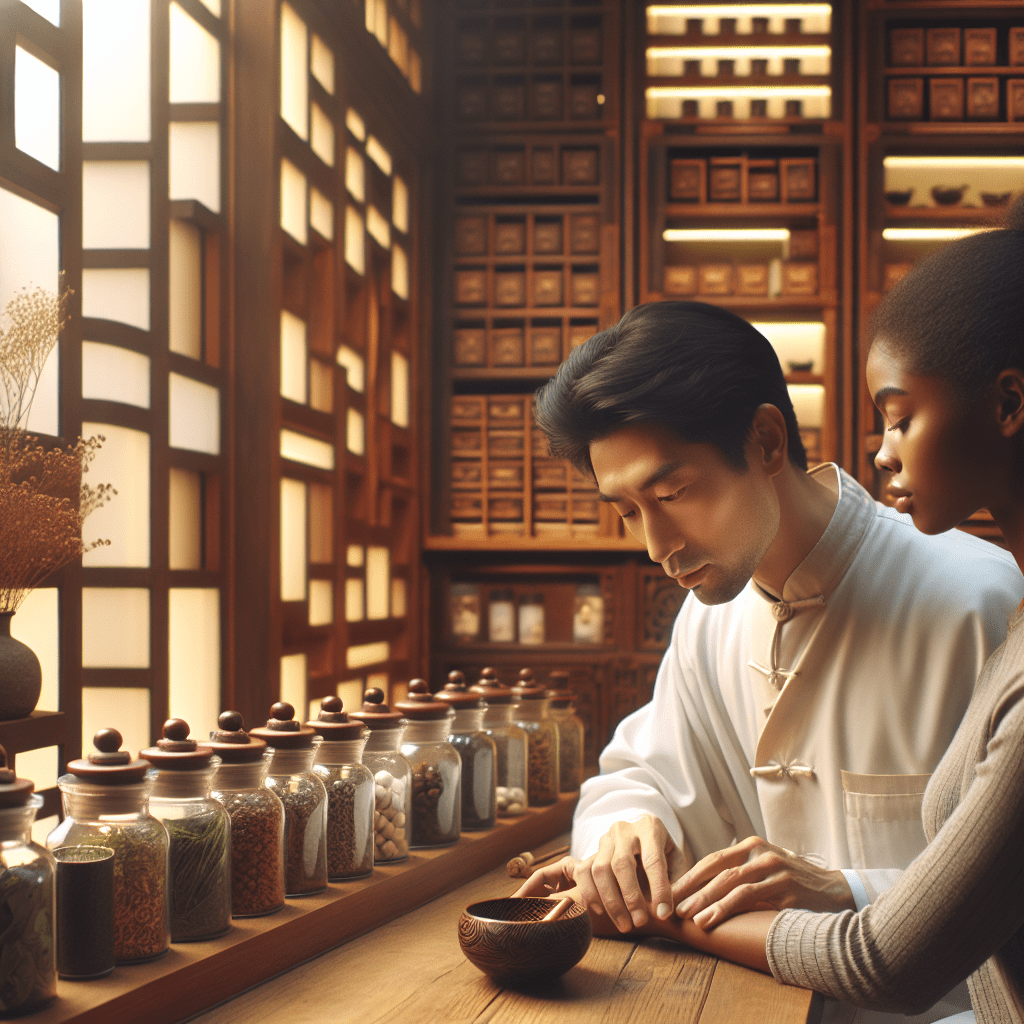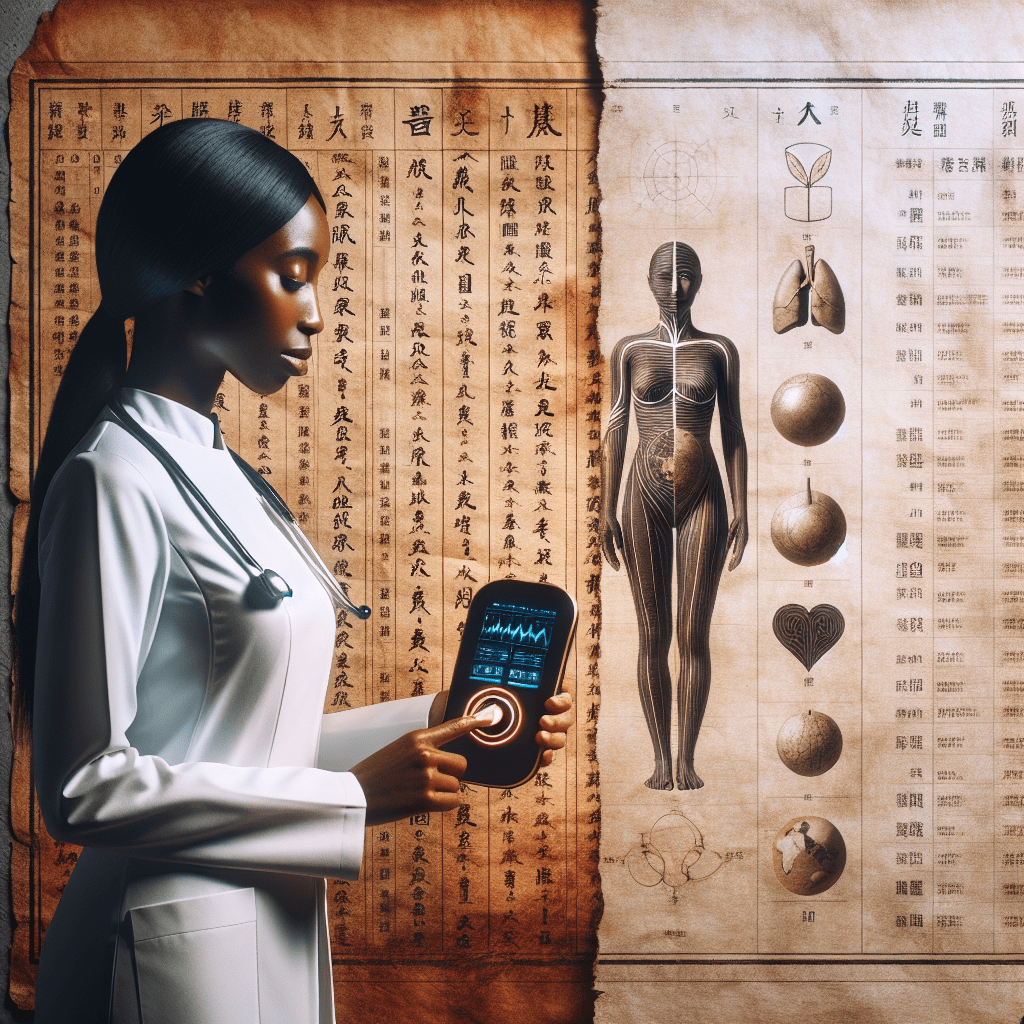Have you ever wondered why some health approaches work wonders for your friends but seem to fall flat for you? The answer might be written in your body’s ancient blueprint, waiting to be discovered through Traditional Chinese Medicine (TCM) body typing. This time-honored practice isn’t just another health trend—it’s a personalized roadmap to wellness that has guided millions toward balanced health for over 2,000 years.
The Ancient Wisdom of TCM Body Typing
Traditional Chinese Medicine views health through a completely different lens than Western medicine. Rather than focusing solely on treating symptoms, TCM examines your unique constitutional makeup—your body type—to understand the root causes of health imbalances and how to address them naturally.
TCM body typing serves as your health blueprint, offering deep insights into both your physical health and emotional well-being. It’s like having a personalized owner’s manual for your body that explains why you might feel cold when others are comfortable, why certain foods leave you feeling energized while others drain you, and even why you respond to stress differently than others.
“In traditional Chinese medicine, pattern differentiation refers to the process of identifying patterns of imbalance or disharmony in the body,” explains Dr. Ming Chen, a TCM practitioner with over 30 years of experience. “Understanding your constitutional type allows you to make proactive choices that support your natural tendencies rather than fighting against them.”
The significance of TCM body typing goes beyond just physical health. Your body type influences your emotional responses, mental clarity, and even your relationships with others. For instance, someone with a naturally “fiery” constitution may experience more intense emotional reactions during stress, while someone with a “water” constitution might internalize stress in quieter, deeper ways.
Research increasingly supports what TCM has claimed for millennia—that an individual’s constitution is a crucial factor in determining how diseases develop and progress. A 2020 study published in the Journal of Traditional Chinese Medicine found significant correlations between specific TCM body types and various biomarkers for cardiovascular health, suggesting that your constitutional makeup can indeed predict certain health vulnerabilities.
The Nine TCM Body Types: Finding Your Match
Traditional Chinese Medicine identifies nine distinct body types, each with unique characteristics, strengths, and health challenges. Understanding which type you embody can transform how you approach everything from your diet to your exercise routine and stress management practices.
1. Balanced Type (Ping He)
The ideal constitution that most of us strive for, characterized by:
- Toned body with radiant skin and shiny hair
- Good stamina and resistance to illness
- Stable emotions and quality sleep
- Balanced appetite and regular digestion
Those with a balanced constitution typically enjoy good health but should still maintain balanced lifestyle habits to preserve their natural harmony.
2. Qi Deficiency Type (Qi Xu)
Often recognizable by:
- Low voice and lack of energy
- Shortness of breath and reluctance to speak
- Pale complexion and possible slight weight issues
- Easily fatigued, especially after minor exertion
Qi deficient individuals benefit from energy-building foods like sweet potatoes, rice, and moderate protein sources. Gentle exercise like tai chi or walking can build stamina without depleting resources.
3. Yang Deficiency Type (Yang Xu)
Typically presents with:
- Cold hands, feet, and overall chilliness
- Pale complexion and possible water retention
- Preference for warm environments and foods
- Lower energy, especially in the morning
Those with Yang deficiency thrive on warming foods like ginger, cinnamon, and well-cooked soups. They should avoid cold drinks and raw foods, which can further deplete their warming energy.
4. Yin Deficiency Type (Yin Xu)
Characterized by:
- Feeling warm or hot, especially in the afternoon
- Dry skin, hair, and possibly dry cough
- Restlessness and difficulty staying asleep
- Red cheeks or flushed appearance
Yin deficient types benefit from cooling, moistening foods like cucumber, watermelon, and pears. They should prioritize adequate rest and avoid excessive exercise in hot weather.
5. Phlegm-Dampness Type (Tan Shi)
Often presents with:
- Heavier body type with possible weight management challenges
- Sticky sweating and feelings of heaviness
- Foggy thinking and possible lethargy
- Tendency toward mucus production and congestion
Those with phlegm-dampness benefit from drying foods like job’s tears barley, radish, and green tea. They should limit dairy, cold foods, and excessive sweets.
6. Damp-Heat Type (Shi Re)
Recognizable by:
- Tendency toward inflammatory conditions
- Yellowish complexion or eyes
- Sticky bowel movements and dark urine
- Feelings of heaviness combined with heat sensations
Damp-heat types should focus on cooling, detoxifying foods like mung beans, celery, and cucumber while avoiding alcohol, fried foods, and excessive spices.
7. Blood Stasis Type (Xue Yu)
Often presents with:
- Purple-tinged lips or skin marks
- Rough or dry skin texture
- Sharp, fixed pains
- Poor circulation and menstrual irregularities in women
Blood stasis types benefit from circulation-promoting foods like ginger, turmeric, and moderate amounts of safflower or red dates. Regular movement is essential for this type.
8. Qi Stagnation Type (Qi Zhi)
Characterized by:
- Emotional sensitivity and mood swings
- Frequent sighing and chest tightness
- Digestive issues related to stress
- Tendency toward breast tenderness or menstrual cramps
Those with qi stagnation benefit from stress-reducing practices like meditation and moderate exercise. Sour foods like lemon and foods with gentle movement properties like mint can help.
9. Special Constitution Type (Te Bing)
This category includes those with particularly sensitive systems:
- Heightened allergic tendencies
- Strong reactions to medications or foods
- Environmental sensitivities
- Require extra care with health interventions
Understanding these TCM body types reveals something profound: there’s no one-size-fits-all approach to health. What nourishes one person might deplete another. What strengthens one constitution might aggravate another. This recognition of our biochemical individuality is perhaps one of TCM’s most valuable contributions to modern health understanding.
“The classification of each TCM body constitution is based on each person’s physical features, psychological characteristics, and physiological tendencies,” notes TCM researcher Dr. Lin Wang. “This holistic approach allows for truly personalized health guidance that Western medicine is only beginning to recognize the value of.”
How EASTCHI AI Brings Ancient Wisdom to Modern Life
While understanding TCM body typing offers powerful insights, applying this ancient wisdom to modern life can be challenging without expert guidance. This is where innovative technologies like HerbalsZen’s EASTCHI AI come into play, bridging the gap between ancient wisdom and contemporary living.
EASTCHI AI represents a revolutionary approach to personal wellness by combining the time-tested principles of Traditional Chinese Medicine with cutting-edge artificial intelligence. This unique fusion allows for personalized health recommendations that respect your constitutional type while fitting seamlessly into modern lifestyles.
The system works by analyzing various factors—including your physical characteristics, emotional tendencies, and health history—to determine your dominant TCM body type. Using this information, EASTCHI AI then generates customized nutrition plans and lifestyle recommendations specifically designed to balance your particular constitution.
For example, if EASTCHI AI identifies you as having a Yin deficiency constitution, it might recommend specific cooling foods that restore moisture and calm, suggest optimal sleeping habits that replenish your system, and even provide guidance on exercise intensities that won’t further deplete your resources.
What makes this approach particularly powerful is that it’s not static. In TCM understanding, your constitutional tendencies remain relatively stable, but your current condition fluctuates with seasons, stress levels, and life changes. EASTCHI AI adapts its recommendations accordingly, offering seasonal dietary adjustments and lifestyle modifications that help you maintain balance year-round.
The integration of Five Element Theory—another cornerstone of Eastern medicine—further enhances this personalized approach. By understanding the elemental associations of your body type (whether you’re predominantly Water, Wood, Fire, Earth, or Metal), EASTCHI AI can provide even more nuanced guidance about how to harmonize your natural tendencies.
Transforming Your Wellness Journey Through TCM Body Typing
Discovering your TCM body type isn’t just an interesting exercise—it’s a doorway to transformative health practices that can fundamentally change how you experience wellness. When you align your daily habits with your natural constitution, you’re no longer fighting against your body’s innate tendencies but working with them.
Here are some practical ways to begin integrating TCM body typing wisdom into your everyday life:
1. Start with mindful observation. Before even determining your exact type, simply begin paying attention to patterns in your body’s responses. Do you consistently feel cold when others are comfortable? Do you notice that you’re more sensitive to certain foods? These observations provide valuable clues about your constitutional tendencies.
2. Experiment with dietary adjustments based on your suspected type. If you frequently feel cold, try incorporating more warming foods like ginger, cinnamon, and well-cooked meals for a week. If you tend to feel overheated, experiment with more cooling foods like cucumber, mint, and watermelon. Notice how your body responds.
3. Adjust your exercise routine to support your constitution. Yang deficient types might benefit from warming exercises like brisk walking or gentle jogging, while Yin deficient types might do better with calming practices like yin yoga or swimming. Phlegm-damp types often benefit from consistent, moderately intense movement to promote circulation and reduce stagnation.
4. Honor your emotional tendencies. TCM body typing recognizes the profound connection between emotions and physical health. If you have a Qi stagnation constitution that’s prone to stress, prioritizing stress-reduction techniques isn’t just a mental health practice—it’s essential physical care as well.
5. Embrace seasonal adjustments. All body types benefit from aligning with natural seasonal rhythms, but the specific adjustments vary by type. Winter might require extra warming practices for Yang deficient types, while summer might necessitate additional cooling measures for those with Yin deficiency.
By taking these steps, you’re not just treating symptoms as they arise but proactively creating conditions for optimal wellness based on your unique blueprint. This preventative approach embodies the true spirit of Traditional Chinese Medicine, which has always emphasized that the best physician prevents illness rather than merely treating it once it appears.
Your Invitation to Constitutional Harmony
Understanding your TCM body type opens the door to a more intuitive, personalized approach to health that honors your unique makeup. Rather than forcing yourself to follow generic health advice that might work against your natural tendencies, you can make choices that support your constitutional strengths and gently balance your vulnerabilities.
HerbalsZen’s EASTCHI AI makes this ancient wisdom accessible in our modern world, combining the depth of Eastern medical theories with the convenience of technological innovation. By analyzing your constitutional type through the lens of Five Element Theory and providing customized recommendations, EASTCHI AI offers a bridge between timeless wisdom and contemporary living.
Whether you’re dealing with specific health challenges or simply seeking to optimize your well-being, TCM body typing provides a roadmap uniquely suited to your personal terrain. It’s a journey of self-discovery that leads not just to symptom management but to profound constitutional harmony.
We invite you to explore how HerbalsZen can support your wellness journey through our balanced approach that honors both ancient traditions and modern innovation. Discover your TCM body type, embrace your unique constitutional blueprint, and transform your relationship with health from the inside out.
Your ancient health blueprint is waiting to be revealed—and with it, a more personalized, intuitive path to lasting wellness.




